The University of California trains more than 16,000 health care professionals annually.
11.1.1 Health sciences students by discipline, fall 2023
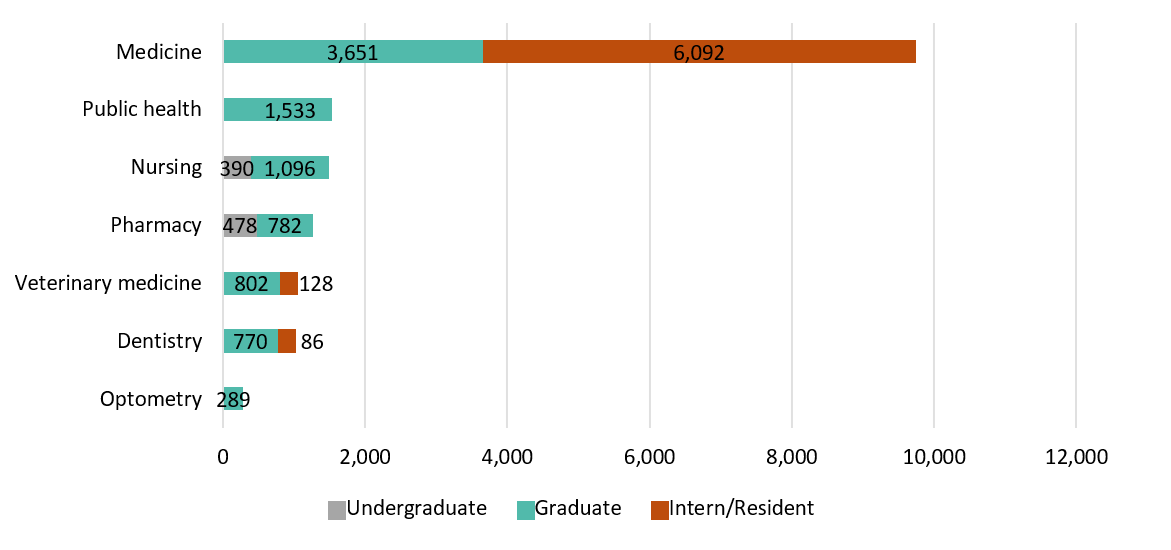
source: UC Information Center data warehouse
improving california's health and well-being
University of California Health shows up every day to provide access to health care for people in our cities, rural areas and underserved communities. Our six academic health centers and 20 health professional schools deliver an unmatched level of specialty care, health professional training, innovation, and service – all rooted in academic medicine, teaching and research.
UC’s health professional education and training programs are a vital source of the state’s health care ecosystem, producing future dentists, nurses, optometrists, pharmacists, physicians, public health professionals and veterinarians. The University has one of the most comprehensive and largest health professional training systems in the nation.
The University’s health training programs are deeply connected with its academic medical centers, which deliver expert care to California communities, especially its most vulnerable. In fiscal year 2022 alone, UC academic health centers provided $1 billion in care to Medi-Cal enrollees for which it was not reimbursed, a 9 percent increase over the 2019 fiscal year. UC’s academic health centers provided an additional $1.9 billion in uncompensated care for people with Medicare coverage in fiscal year 2022, a 38 percent increase since fiscal year 2019.
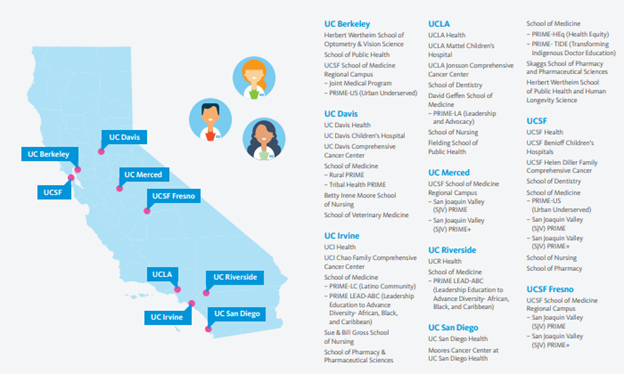
The University of California trains more than 16,000 health care professionals annually.
11.1.1 Health sciences students by discipline, fall 2023

source: UC Information Center data warehouse
UC-trained health care professionals practice throughout the State.
11.1.2 Location of physicians, nurses, dentists, optometrists, and veterinarians trained by UC since 1999 and currently licensed in California.
![]()
UC-trained health professionals in California dashboard
source: UC corporate student system and the CA Department of Consumer Affairs, as of 2023
UC health sciences programs are a significant resource for training new health care professionals to serve across the state.
In the field of medicine, California leads the nation in retention of medical school graduates, and data from the Association of American Medical Colleges show that 77.5 percent of residents who completed their training in California from 2013 through 2023 are practicing in the state.
11.2 health sciences student debt
Inflation-adjusted health science professional degree fees have remained steady or declined for most programs.
11.2.1 Average total charges for health professional degree students, Universitywide, 2010–11 to 2023–24
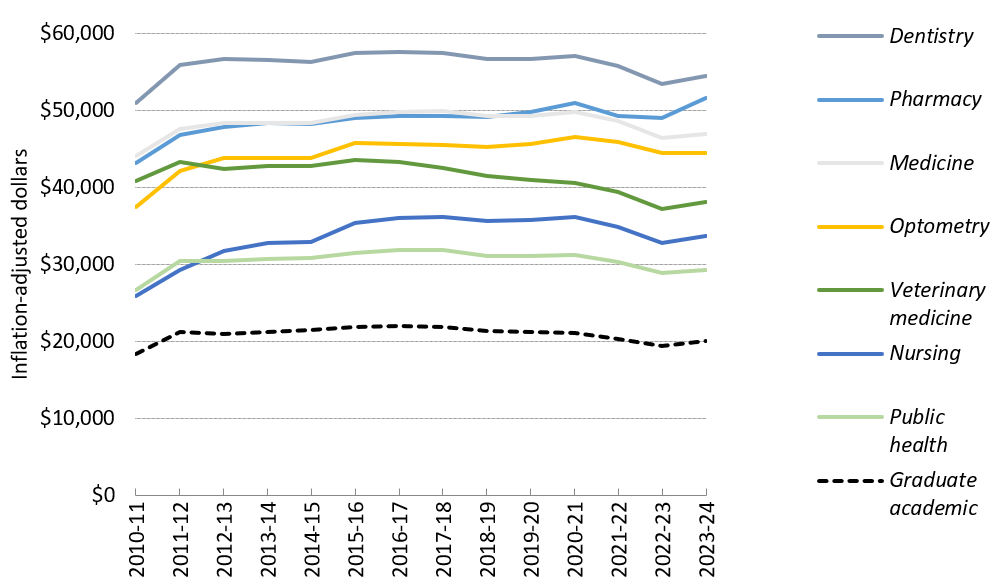
source: UC Budget Analysis and Planning
11.2 health sciences student debt
Average health science professional degree student debt levels are relatively flat or decreasing.
11.2.2 Health sciences professional degree student debt at graduation, Universitywide, 2012–13 to 2022–23, selected years
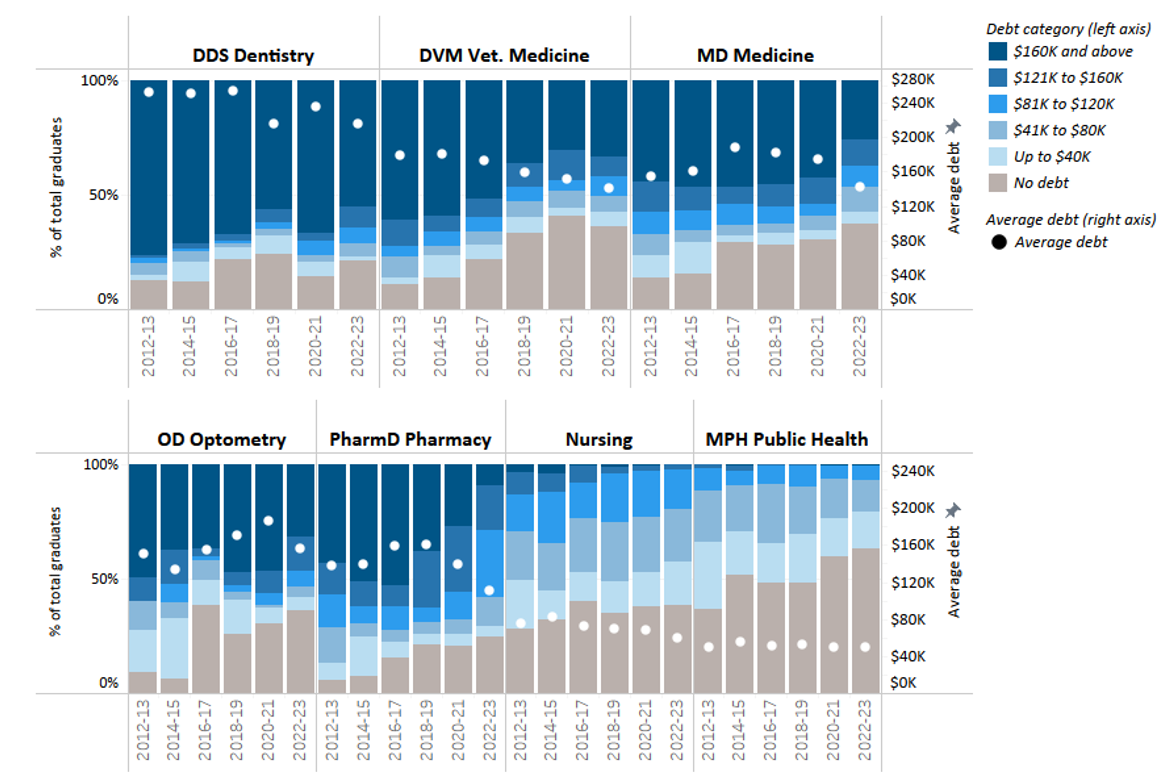
source: UC Information Center Data Warehouse
As academic health centers and safety net hospitals, UC locations are destinations for some of the most critically ill patients in the state.
11.3.1 Patient complexity (Case Mix Index), patient days, outpatient visits, and hospital admissions, UC medical centers
![]()
University of California Medical Centers 2022–23 annual financial report | page 27 through 31
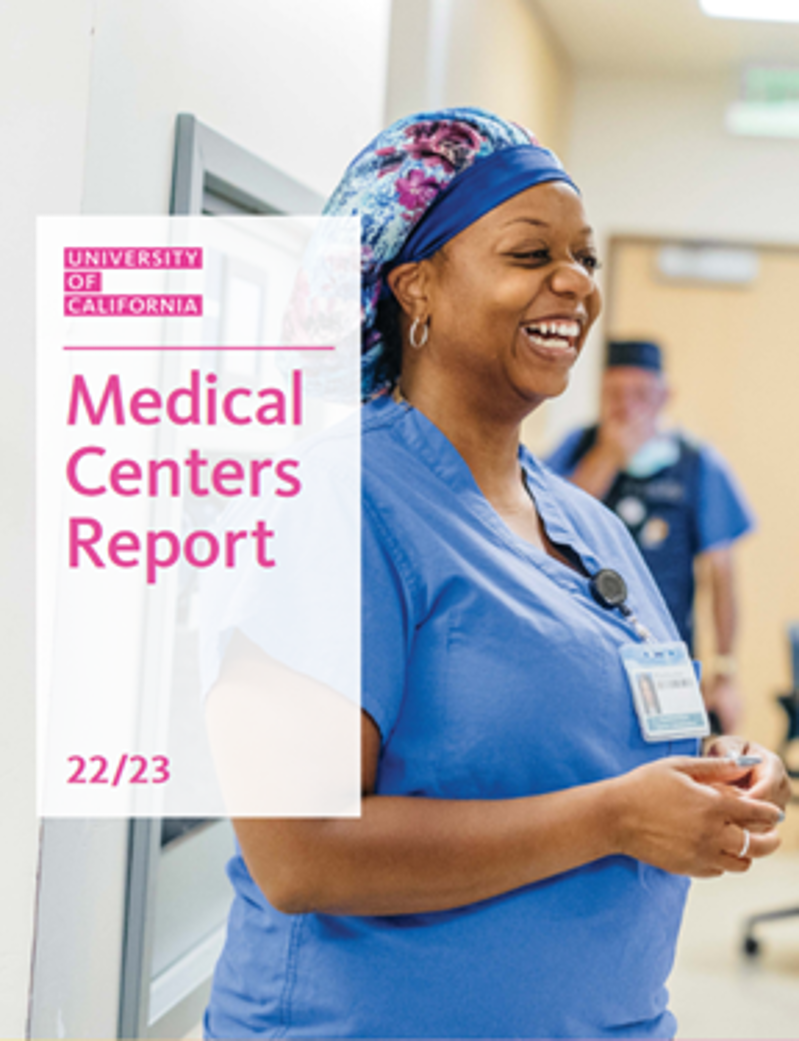
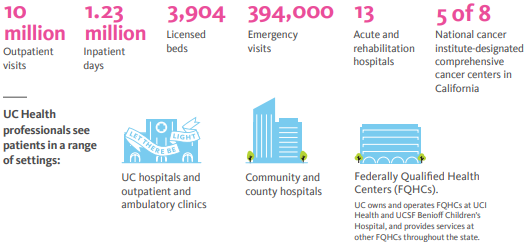
Nearly three quarters of the patients in UC hospitals on any day have Medicare or Medi-Cal coverage.
11.3.2 Inpatient days by patient type, 2022–23
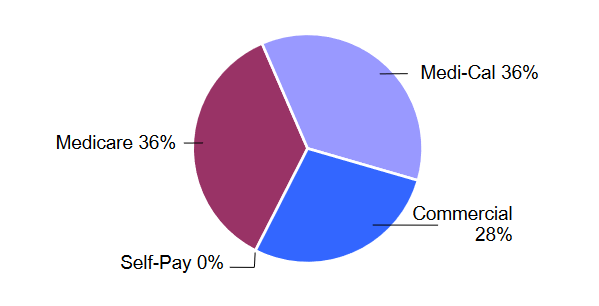
source: UC Budget for Current Operations
Note: Inpatient days associated with UCSF include UCSF Benioff Children’s Hospital Oakland,a blended component unit of the University of California.
UC’s health professional programs and academic health centers are recognized leaders.
UC schools of medicine made up four of the top 13 schools nationally for diversity in U.S. News & World Report’s 2023 rankings.
Four UC Health locations were among the top 13 comprehensive academic health centers in the nation for patient care quality in 2023, according to Vizient, Inc., one of the nation’s leading health care performance improvement companies. Receiving the Bernard A. Birnbaum, MD, Quality Leadership Award were:
Five University of California academic health centers were honored in Health Care Without Harm's 2023 Health Care Climate Challenge for ongoing efforts to address climate change and strengthen resiliency.
University of California Health Community Benefits Report (pdf)
UC Budget for Current Operations (website) includes:
Medical Centers Annual Financial Report (website) includes:
University of California Health (website)
More UCH reports and resources (website)
UC-trained health professionals in California dashboardDownload data tables for chapter 11 indicators (Excel format)